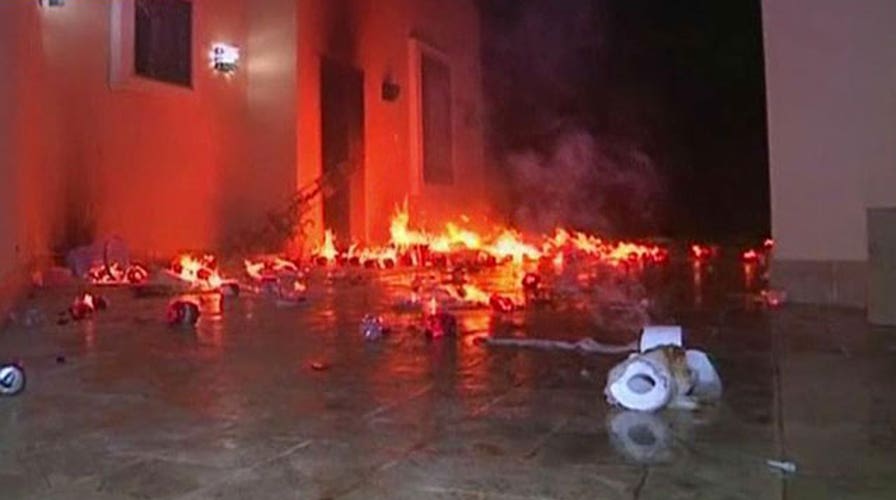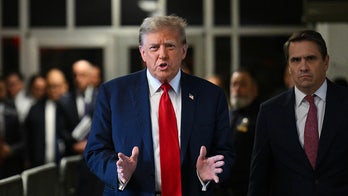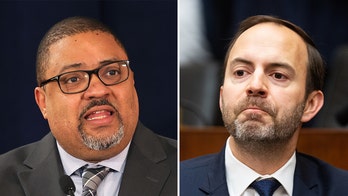Sean Smith's uncle: Benghazi emails raise more questions
Michael Ingmire wants answers from Valerie Jarrett
The Republican chairman of the House Armed Services Committee publicly challenged the credibility of a former military intelligence official who testified Thursday that more should have been done to help Americans under fire during the Benghazi attack.
The statement from Rep. Howard "Buck" McKeon, R-Calif., marks a rare intra-party squabble on Benghazi. While Republicans on the House oversight committee touted the testimony of retired Brig. Gen. Robert Lovell -- who said U.S. personnel "should have tried" to help Americans under fire that night, and the State Department never gave the green light -- McKeon suggested that those in the chain of command saw things differently.
"BG Lovell did not serve in a capacity that gave him reliable insight into operational options available to commanders during the attack, nor did he offer specific courses of action not taken," McKeon said in a statement.
He added: "We have no evidence that Department of State officials delayed the decision to deploy what few resources DoD had available to respond."
Lovell was the deputy intelligence director at U.S. Africa Command at the time, stationed in Germany. He acknowledged he was not in the chain of command, but was serving in a staff role at that point.
Still, he described a mood of "desperation" at the operations center as military officials tried to gain "situational awareness." He said the State Department never gave approval to send assets to Benghazi.
Lovell offered a nuanced take of what happened that night and of the U.S. response.
He questioned the merits of the ongoing debate over whether U.S. military forces could have responded in time.
"The point is we should have tried," Lovell told the House Oversight and Government Reform Committee. "As another saying goes -- always move to the sound of the guns."
Later on, he appeared to back the assertion that, in hindsight, not much more could have been done.
An oversight committee spokeswoman later defended the testimony, saying: “General Lovell’s important testimony underscores why Americans, and specifically Benghazi victims’ families, have been unsatisfied with closed door and incomplete evaluations of the military response.”
Staff on the Armed Services Committee appeared to take umbrage with that characterization. One aide on that committee told Fox News that some reviews are “closed door” because they deal with classified information.
“But we have been diligent to declassify as much as possible and have posted those declassified transcripts in January of this year. It is also puzzling that the Oversight Committee finds our work incomplete … Armed Services’ classified briefings on Benghazi were open to members of the Oversight Committee and those members were allowed to ask extensive questions of witnesses,” the aide said.
Lovell also sharply countered claims that the intelligence community and military initially thought this was a protest over an anti-Islam video gone awry. He said U.S. officials knew this was a "hostile action" from the outset, even though they didn't know how long the attack would last.
"This was no demonstration gone terribly awry," Lovell said. "The facts led to the conclusion of a terrorist attack."
On this point, McKeon agreed.
"He confirmed what my committee has understood for some time, that the military never believed this was a protest gone bad, and that the President fundamentally failed to posture our forces respond to any emergency in the weeks before 9/11," he said in his statement.
The House Armed Services Committee concluded in one report that the military response was lacking because of the positioning of U.S. forces at the time.
Lovell's testimony comes two days after new emails were obtained and released by a watchdog group showing a top White House aide was involved in preparing then-U.N. ambassador Susan Rice for her controversial Sunday show appearances, where she pushed the narrative that protests over an Internet video were to blame.
Rep. Darrell Issa, R-Calif., at the start of the hearing, ripped the administration over those emails, and accused it of deliberately hiding the documents after an earlier congressional subpoena.
"It is disturbing and perhaps criminal ... that documents like these were hidden by the Obama administration from Congress and the public alike," Issa said. He claimed the withholding of these documents is the worst transparency violation since at least the Nixon administration.
One email showed notes from White House adviser Ben Rhodes regarding a "prep call" with Rice; the notes discussed the Internet video as the cause. White House Press Secretary Jay Carney claimed Wednesday that the "prep call" was only in reference to demonstrations elsewhere in the Middle East and Africa, and not Benghazi.
House Speaker John Boehner called Thursday for Secretary of State John Kerry to testify before Congress in light of these revelations.
"Someone needs to answer why this administration hid these documents - and tell the American people what else is being concealed. The House used its subpoena power to obtain documents, including emails, last year, but these emails didn't show up until now, after a court ordered their release to an outside watchdog group," he said in a statement. "This defiance of the House's subpoena power is the most flagrant example yet of the administration's contempt for the American people's right to know the truth about what happened when four Americans died in a fiery terrorist attack."





